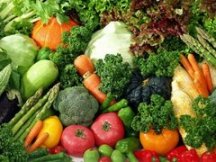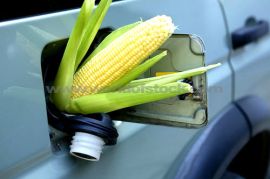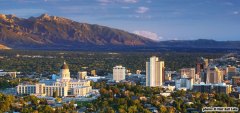Wilson’s Wager
Since when could you inject testosterone into your system for a little t boost? There are seemingly more and new diseases everyday now, many which didn’t exist 50 years ago. We as a society could blame a number of different things, but arguable the main cause is what we put into our body. Have you ever really thought about the statement you are what you eat?
You’ve heard it before, but probably didn’t seriously consider this phrase. I say this because something is clearly terrible wrong with the way most Americans eat. We are one of the most obese countries in the world. Cancer, heart disease, and diabetes are all growing in numbers. Some manifestos of my classmates are about reversing our diet to what the caveman consumed. They are on the right track to saving a lot of lives.
Until recently I hadn’t, really thought about this phrase my 6th grade teacher introduced to me. I have always strived to eat very healthy though. My mom was a big health freak and yoga instructor, so naturally I would eat naturally made foods the majority of the time. Also, I was always envolved in multiple athletics requiring a pristine energy filled, nutrient rich diet. I never realized how important my diet was to my daily life.
But seriously, we expel energy every single day. Whether we are at work, the gym, or simply moving around in our daily lives, fuel is being spent from what we consumed before. To regenerate our body, we have to consume foods helping with the muscles and cells in our body.
I’m not here to talk about diseases and else. That would take forever considering the new number. And I’m not here to tirade on the horrible effects of meat for everyone who enjoys a good steak. My goal is to argue that no harm can come from eating a more plant based diet. Whether meet is bad for you or not, research has shown the health benefits of consuming more plants. I want to stray the common person away from consuming meat on a daily basis to covering three quarters of every plate with fruits, vegetables, and whole grains; basically, a plant based diet.
“The universe is nothing without the things that live in it, and everything else that lives, eats.” – Aphorisms of the Professor
Right here on the campus of Chapman University, it is prevalent how effective eating more vegetables is to our overall health. Recently I went to our cafeteria where I took watch of the type of people who took plates from each food section. Fortunately, softball practice had just finished and I saw all the girls go straight to the salad bar for their food. I would say they are all in pretty good shape too. Most guys, however, who don’t really watch what they eat went straight to the italian section and followed with a plate of asian food. This is not the healthiest way to eat at the Chapman dining hall.
The traditional notion for what an athlete eats is a very meat and protein based diet. In high school, I played lacrosse and hockey, and the goal after practice was always to eat a large steak. However, there are plenty sources of protein that provide for a healthier choice.
Americans today (largely attributed to college students) make some of the worst decisions on food, which is prevalent in our health statistics. We will often eat at fast food places because we’re in a rush, and can’t wait to cook a solid meal after working out. Or maybe we have a budget for the month and fast food saves the most cash. The bottom line is whatever we eat is fuel for our bodies throughout each day, and eating healthy now provides for long term healthy energy production. Knowing this, people should be willing to blow more cash on food and spend more time making meals. After all, we will function better and achieve more throughout the day.
A recent published article in the Wall Street Journal discusses the harmful effects of what we used to think were healthy foods, mainly dairy products. Findings “pointed away from meat and milk as the building blocks of a healthy diet, and toward whole, plant-based foods with little or no added oil, sugar, or salt.” The article goes on to say heart disease and certain cancers strongly associate with animal protein-based diets, and pain relief along with other issues are reduced when consuming dairy ceases.

Credit The Plant Based Diet.com
When I was growing up the doctor was always saying to drink four glasses of milk per day and red meat is important in your diet. Knowledge from the past drastically conflicts with different research present today. However, no one ever said there were negative effects of eating a more plant based diet.
The American people solely are not to be blamed for these bad decisions. After all, the government doesn’t allocate money properly. Yes they produce enough to feed a large population, but this is done in an irresponsible manner, which will catch up to everyone in the future.
When I say irresponsible, I mean the government spending on livestock and poultry counts for over half of US agriculture cash receipts, exceeding $100 billion per year (USDA). A number of issues arise when looking at this statistic. This spending would be justified if the majority of our plates at dinner should be covered with meat. But a balanced meal with more vegetables, fruits, and grains is proven to be healthier for us.
For anyone who has seen the film King Corn, they understand the ramifications of this government spending, which keeps two brothers clothed as they create the movie. After realizing the majority of their bodies are made up of corn, the two brothers move to Iowa to grow on an acre of land- and learn a lot in the process.

Credit – World of Stock.com
Ironically, farmers in Iowa can no longer feed themselves. They cannot even eat a single cob they grow! All the corn is fed into an industrial process that feeds cows, pollutes the environment, and ends up in all of our process foods. In the movie, this corn-fed beef and high fructose corn syrup is linked to diabetes and other negative health effects.
Salt Lake City, where I was born and raised, has the “inversion effect.” The inversion happens when warm air traps cold air in the valley between mountains, and we get thick smog; partially from the clouds, largely from trapped pollution. I don’t know when I became such an environmentalist, but I could largely attribute it to looking at thick smog every time we went without a storm every two weeks. I would prefer to always breath the air in the first picture.

Credit – Summer Mountain Travel
- Credit – The Daily Debry
One of the largest contributions to pollution on a global perspective is food production, according to a United Nations report. But at the same time, we have a large population to sustain and doing so will almost always add to pollution. The UN report states that the only way to feed the population without adding to the environmental problem is to move towards a vegetarian based diet.
The seventeenth-century philosopher Blaise Pascal posits that a rational person should live as though God exists and seek to believe in Him. If God does not actually exist, the person will have only a finite loss, of luxuries and pleasures. This apologetic philosophy is called Pascal’s Wager. Research out there hints a lot of things, but nothing bad has ever resulted from eating more plants and whole grains for nutrients rather than meat. Not only is it better for our health, but for the environment. We may lose out on the finite luxury of a juicy red stake, but in the end, this method of consuming is more beneficial to our livelihood and our souls. So next time your at Costco buying food for the rest of the week, buy a little less steak and a lot more salad.

Credit – Roman Catholicism.org





